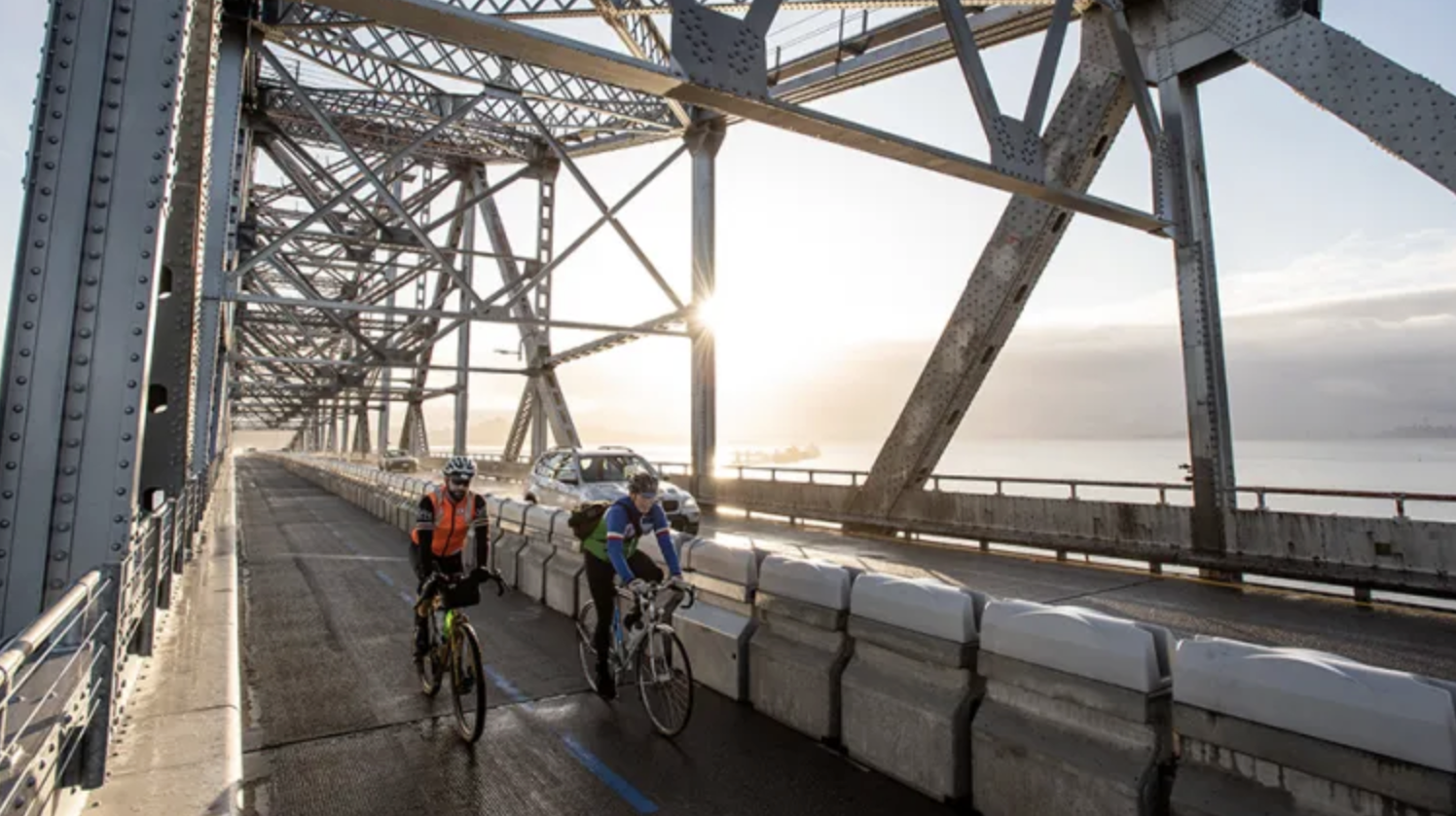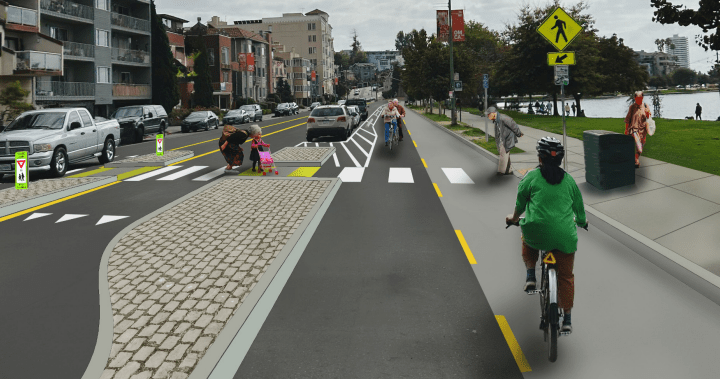Weekend Roundup: More Ways to Save JFK, Parking Trumps Safety Again
2:59 PM PDT on September 30, 2022
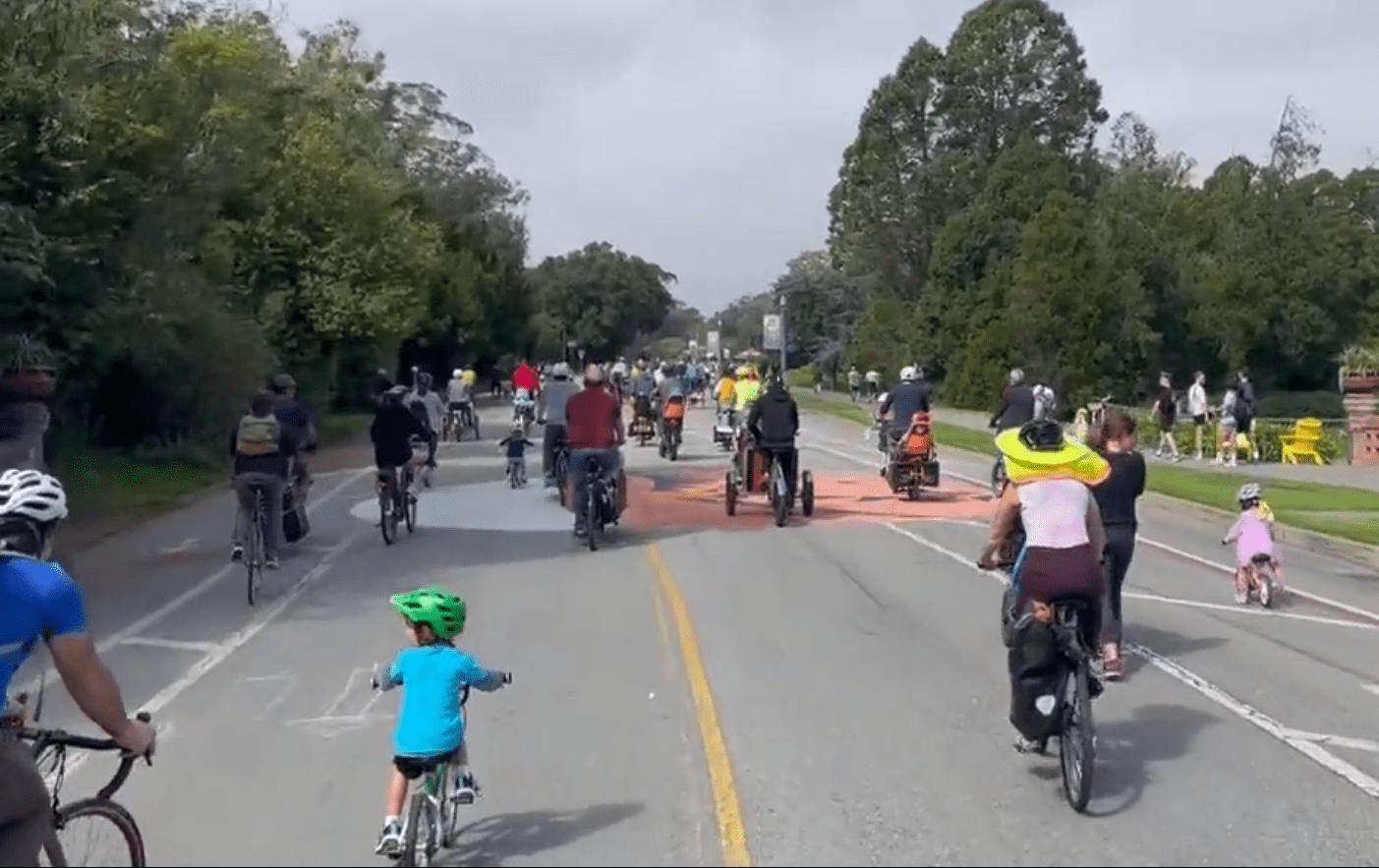
Still grabbed from Luke Bornheimer’s Twitter
Here are a few Streetsblog news nuggets to start your weekend.
Check out Walk San Francisco's JFK action checklist
Wondering what you can do to support the JFK Promenade and help stop Dede Wilsey's push to convert it back into a dangerous, surface-level freeway? The hard-working advocates at Walk San Francisco have put together an action checklist so you can help.
From their checklist page:
On November 8, San Francisco voters will decide the fate of the 1.5 miles of safe, healthy space on JFK Drive in Golden Gate Park that was created early in the pandemic. Although city leaders voted to make this space permanent in April, it’s now on the ballot in response to an opposing measure – Measure I. Measure I would take away what’s now called ‘JFK Promenade’ (among other things).
We are counting on everyone who loves car-free JFK to help get the word out to vote YES on J, YES on N, and NO on I.
The page tells advocates where to get window signs, how to advocate with friends, and more. Be sure to check it out.
Will parking trump safety on Hopkins Street in Berkeley?
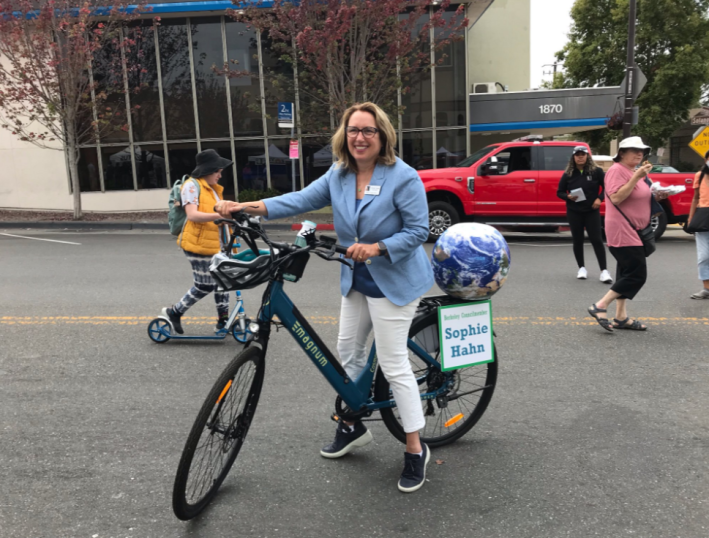
A project to put protected bike lanes on Hopkins Street is running into pushback from merchants represented by Councilmember Sophie Hahn of Berkeley District 5. She is calling on the city to delay and restudy the project, even though it was approved last May. As explained on Bike Walk Berkeley's Twitter feed:
Hahn’s asking for $400K to study a few blocks of Hopkins that have ALREADY been studied and Council-approved.
— Walk Bike Berkeley (@WalkBikeBerk) September 30, 2022
NO!
Spend that $$ on quick-build safety improvements in West Berkeley and other neighborhoods with historic and ongoing underinvestment.
Item: https://t.co/tr9xRkiuw6
At least Hahn is honest that this is purely about parking: her letter to the council states clearly that she thinks parking considerations are on the same level of importance as whether or not cyclists are killed or maimed. "A major impetus for the Hopkins Corridor study and improvements is to significantly improve pedestrian and bike safety, but business and community-supporting elements were always intended to have equal [emphasis added] and simultaneous consideration." And, yes, in context "business and community-supporting elements" just means parking.
The hard-working advocates at Walk Bike Berkeley are urging Berkeley residents to call their electeds on the city council to urge them to vote "no" on a delay to this important safety project.
Metropolitan Transportation Commission's new transit-oriented development policy
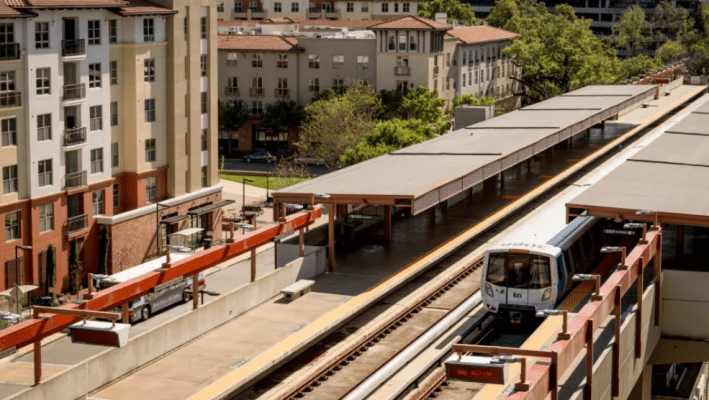
Advocates celebrated the passage Wednesday of a new transit-oriented development policy by the MTC. The MTC's release states that the new policies will:
...boost the overall housing supply and increase residential densities in transit-rich areas throughout the Bay Area; spur more commercial development near transit hubs served by multiple agencies; promote bus transit, walking, biking and shared mobility in transit-rich areas; and foster partnerships to create transit-oriented communities where people of all income levels, racial and ethnic backgrounds, ages and ability levels can live, work and thrive. The new policy, which replaces a Transit-Oriented Development (TOD) Policy originally adopted by the Commission in 2005 and then updated several times in subsequent years, applies specifically to areas within a half-mile of BART, Caltrain, SMART, Capitol Corridor and ACE stations; Muni and VTA light-rail stations; Muni and AC Transit bus rapid transit stops; and ferry terminals.
"It's not perfect, but it's a huge step toward the transformation we need around good transit stations, particularly when combined with AB2097 and AB2011 which fill some holes that were created by TOC policy compromises," wrote Jonathon Kass, Transportation Policy Manager for SPUR, in an email to Streetsblog.
“Using transportation funds as an incentive, the policy encourages cities and counties to upzone transit-rich areas so transit, walking and biking can be viable travel choices for more people, and so we can generate maximum value from the billions of taxpayer dollars that have been invested in our transit network over the years as well as new transit lines that will be built in the years to come," wrote MTC Chair and Napa County Supervisor Alfredo Pedroza in a statement. "The policy specifically encourages the development of affordable housing and protects current residents from being displaced by new development."
Streetsblog will have more on the significance of this change in an upcoming post.
Stay in touch
Sign up for our free newsletter
More from Streetsblog San Francisco
Weekend Roundup: Bancroft Lane Gets Concrete, Party in Downtown S.F.
...and the Bay Bridge to get its lights back
Richmond-San Rafael Bridge Bike Lane Will Need Support
There's no evidence the bike lane contributes to congestion on the bridge
Update on Oakland DOT’s Lakeshore Protected Bike Lane Project
Public seems fairly positive and accepting towards the coming project. Let's hope it stays that way

